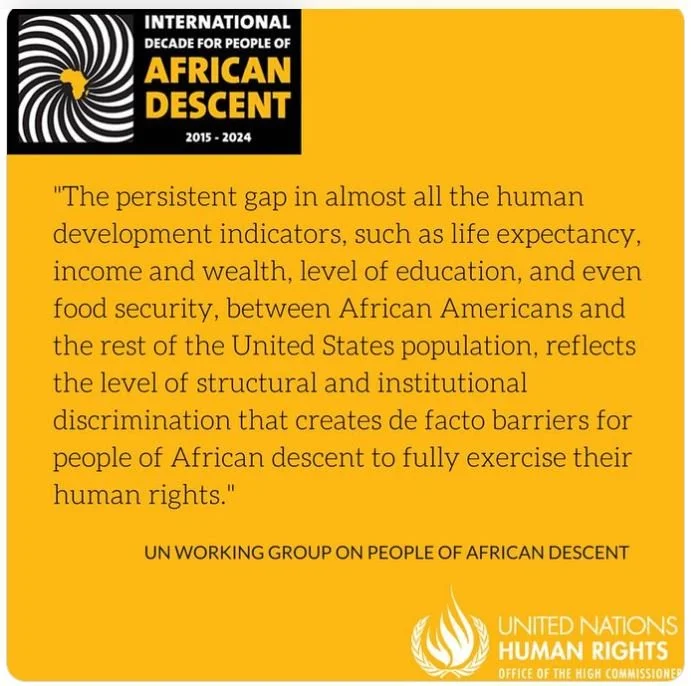On August 30, 2022, the UN Committee on the Elimination of Racial Discrimination (CERD) released its review of U.S. compliance with the CERD treaty and, for the first time, called on the U.S. government to begin the process of providing reparations to descendants of enslaved people. This represents a significant moment in the history of the reparations movement in the United States and globally and is the result of the collective efforts of many individuals and groups. It should be remembered that,
“The human rights machinery of the UN is a recent development. Past efforts were never processed or followed through. Since its inception, the United Nations has been viewed as a focus of appeal by numerous aggrieved nationalities who have been stymied in their attempts to achieve adequate response to their grievances through domestic legal systems. However, all too frequently, the groups concerned are unaware of the legal and political conditions and processes which will enable the United Nations to consider their complaints. Trips to Geneva are made, important contacts are spoken to, good will is expressed, and well-documented grievances exchange hands. And yet, because the necessary political and legal processes are not followed (or did not exist), it is as if nothing had been done at all - even though the minority/nationality representatives concerned may in all sincerity feel that they have taken their group’s grievances to the UN. . . . Political pressure created by African-Americans demanding these rights, in conjunction with international pressure, will create circumstances that will raise the cost both domestically as well as internationally, of denial of these rights beyond the benefit of not providing for them. To maintain the credibility of its position as a leading power, the United States must provide for minority [human] rights, should these rights be demanded.” - Minority Rights: Some Questions and Answers, Y.N. Kly and Diana Kly
To increase the civil and political literacy of black people in the United States, the following is prepared as a reference guide to some of the important source documents involved in the current phase of the struggle for reparations and the protection of human rights of Afro Descendent people in the United States.
Committee on the Elimination of Racial Discrimination (CERD)
The Committee on the Elimination of Racial Discrimination (CERD) is the body of independent experts that monitors implementation of the Convention on the Elimination of All Forms of Racial Discrimination by its States parties.

























































CERD Follow Up Resolutions
75/314. Establishment of the Permanent Forum of People of African Descent - 2 August 2021

























The World Conference against Racism, Racial Discrimination, Xenophobia and Related Intolerance
The World Conference against Racism, Racial Discrimination, Xenophobia and Related Intolerance met in Durban, South Africa, from 31 August to 8 September 2001, and issued a plan of action.












































































